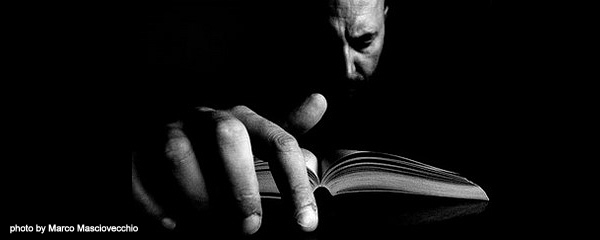
Photo by by Marco Masciovecchio
by Phil Latham
Disclaimer: Some, all or none of the below may or may not be fact or fiction. Or both. Phil Latham takes no responsibility for anyone believing what he says to be true or helpful or entertaining. Ever. No dead people were excavated during the creation of this blog.
*****
Films often start with a hook of excitement or intrigue to entice the viewer to watch the rest, but what about short stories and novels?
In literary terms, what do you do when you first pick up a novel or collection of short stories? I gaze at the front cover then flick to the back to read the story blurb. Next, I find chapter one, crease back the page and start reading (and hope I don’t get thrown out of Waterstone’s by security). The first thing I read is (of course) the opening line and some agents and writers assert that the very first line has to hook the reader to make them want to read the rest.
Is this true?
To test this X-Factor theory, I have compiled twelve classic opening lines for you online types to consider. Here are the first four:
(1) Alice was beginning to get very tired of sitting by her sister on the bank, and of having nothing to do: once or twice she had peeped into the book her sister was reading, but it had no pictures or conversations in it, ‘and what is the use of a book,’ thought Alice ‘without pictures or conversation?’ (Alice’s Adventures In Wonderland byLewis Carroll)
(2) My father’s family name being Pirrip, and my Christian name Philip, my infant tongue could make of both names nothing longer or more explicit than Pip. So, I called myself Pip, and came to be called Pip. (Great Expectations by Charles Dickens)
(3) Dorothy lived in the midst of the great Kansas prairies, with Uncle Henry, who was a farmer, and Aunt Em, who was the farmer’s wife. (The Wonderful Wizard of Oz by L Frank Baum)
(4) Call me Ishmael. (Moby Dick by Herman Melville)
Do these hook the reader solely from the first line? Er . . . no. I read each one and think: so what? I don’t much care that a girl called Alice happens to be tired and doesn’t like a book. Nor am I gripped by a narrator telling me he called himself Pip because he couldn’t talk properly. If I didn’t know the story, it would not matter to me if Dorothy lived in Kansas or Kentucky or Kettleshulme. Call me Ishmael? Call me a cab more like. Calling me Ishmael is different (most people call me Phil), yet read in isolation it does not stimulate me to read further.
What about these chaps of cheekiness:
(5) The studio was filled with the rich odour of roses, and when the light summer wind stirred amidst the trees of the garden there came through the open door the heavy scent of the lilac, or the more delicate perfume of the pink-flowering thorn. (The Picture of Dorian Gray by Oscar Wilde)
(6) 3 May. Bistritz. Left Munich at 8:35 P.M., on 1st May, arriving at Vienna early next morning; should have arrived at 6:46, but train was an hour late. (Dracula by Bram Stoker)
(7) Mr. Sherlock Holmes, who was usually very late in the mornings, save upon those not infrequent occasions when he was up all night, was seated at the breakfast table. (The Hound of the Baskervilles by Arthur Conan Doyle)
(8) During the whole of a dull, dark, and soundless day in the autumn of the year, when the clouds hung oppressively low in the heavens, I had been passing alone, on horseback, through a singularly dreary tract of country; and at length found myself, as the shades of the evening drew on, within view of the melancholy House of Usher. (The Fall of the House of Usher by Edgar Allan Poe)
Do these creepy openings make us want to read on based on the first line? I am not enthralled by a studio smelling of flowers. I do not care one jot that a train was an hour late (although I might if author hinted at the reason why). Sherlock Holmes might as well be downloading traffic warden porn on his breakfast table laptop for all the excitement the line generates. I do, though, find Edgar Allan Poe’s alliterative opener intriguing, because it suggests something sinister. However, by the time I reach the end of Mr Poe’s 60-word sentence my brain (and lungs) suffer from word overload.
Here are the last four:
(9) No one would have believed in the last years of the nineteenth century that this world was being watched keenly and closely by intelligences greater than man’s and yet as mortal as his own; that as men busied themselves about their various concerns they were scrutinised and studied, perhaps almost as narrowly as a man with a microscope might scrutinise the transient creatures that swarm and multiply in a drop of water. (The War of the Worlds by H G Wells)
(10) The family of Dashwood had long been settled in Sussex. (Sense and Sensibility by Jane Austen)
(11) On the 24th of May, 1863, my uncle, Professor Liedenbrock, rushed into his little house, No. 19 Königstrasse, one of the oldest streets in the oldest portion of the city of Hamburg. (A Journey Into the Interior of the Earth by Jules Verne)
(12) Stately, plump buck Mulligan came from the stairhead, bearing a bowl of lather on which a mirror and a razor lay crossed. (Ulysses by James Joyce)
I find the first ‘line’ by Wells intriguing because of the alien overtone of creatures swarming and multiplying, but, as with Mr Poe, its 72-word length stretches comprehension over enjoyment. The remaining three do not hint at much excitement either, the most intriguing perhaps being ‘rushed into his little house’ (why is he rushing?).
Despite their dull starts, these twelve lines are from classic texts (written by dead people). Yes, I am being unfair in selecting these first lines from thousands. Yet if the first line the reader scans lacks excitement or intrigue then they are liable to make assumptions about the rest, if only subconsciously.
These selections show that if you can write a sensational first line, great, super, smashing, you’ve won a prize . . . but many writers can’t. So all those unpublished writers can take solace knowing that those who can’t include Charles Dickens and Jane Austen and James Joyce (please, no laughing at the back). Read, too, the first lines of The Count of Monte, War and Peace and The Adventures of Tom Sawyer to discover examples of other notable works that contain yawn-inducing openings despite their ‘classic’ status.
What do you do if you see an opening line that stinks (to use the technical term)? I actually continue and give the short story or novel at least a page or two (or chapter) to find its rhythm and voice. Yet some unforgiving creatures will close the work and move on. Harsh, but true.
It may seem trite, but we are living in a world where time is ever more precious and some people seek instant gratification. Indeed, for many, even reading this blog will take too long. Does that mean your story should start with a killer line? Not necessarily. Yet if you are writing a short story or novel, why not try to make your opening line/paragraph/page/chapter hook the reader with a bit of intrigue in a similar way that a decent film hooks a viewer?
Make the person want to read the rest so that, like the cinema fee-paying audience, they feel transported to your world.


You make a lot of good points and I’ve come to the same conclusion, that it takes more than the first line to hook the reader; that this focus has been way overblown. I find it more credible that at minimum the first two pages should be engaging and hold the reader enthralled so they can at least finish a chapter. If they can’t go beyond it then you are in trouble. I had been struggling with one of my short story opening, saying it’s trite, it’s been done many times before, etc., etc, until common sense prevailed. You don’t know how many times I’ve changed it (or maybe you can guess)! As I’ve gained more confidence in my characters and story, I see that I’m worrying over nothing. Writing styles change like fashions and just when it’s said one must not do this or that, someone breaks the rules and conquers the world, so to speak. So wish me luck as I’m about to send my story out to the world. May it find a receptive audience.